 W
WJohannes Carl Andersen was a New Zealand clerk, poet, ethnologist, librarian, editor and historian. He was born in Klakring, Denmark on 14 March 1873.
 W
WBarbara Angus was a New Zealand diplomat and historian who served as the country's ambassador to the Philippines between 1978 and 1981. She also worked for the Department of Internal Affairs as a research assistant in its War History Branch and later for the Department of External Affairs. Angus had stints as a diplomat in Singapore, Sydney, Kuala Lumpur and Washington, D.C. and authored a book on Katherine Mansfield and wrote two entries for the Dictionary of New Zealand Biography.
 W
WMichael Edward Rainton Bassett is a former Labour Party member of the New Zealand House of Representatives and cabinet minister in the reformist fourth Labour government. He is also a noted New Zealand historian, and has published a number of books on New Zealand politics, including biographies of Prime Ministers Peter Fraser, Gordon Coates and Joseph Ward.
 W
WMichael Edward Rainton Bassett is a former Labour Party member of the New Zealand House of Representatives and cabinet minister in the reformist fourth Labour government. He is also a noted New Zealand historian, and has published a number of books on New Zealand politics, including biographies of Prime Ministers Peter Fraser, Gordon Coates and Joseph Ward.
 W
WJames Christopher Belich is a New Zealand historian, known for his work on the New Zealand Wars and on New Zealand history more generally. One of his major works on the 19th-century clash between Māori and Pākehā, the revisionist study The New Zealand Wars (1986), was also published in an American edition and adapted into a television series and DVD.
 W
WElsdon Best was an ethnographer who made important contributions to the study of the Māori of New Zealand.
 W
WCatherine Bishop is a New Zealand-born, Australian-based historian specialising in gender and business history. In 2016 she won the Ashurst Business Literature Prize.
 W
WEdmund Bohan is a New Zealand historian, biographer, novelist, singer, and author.
 W
WBarbara Lesley Brookes is a New Zealand historian and academic. She specialises in women's history and medical history.
 W
WThomas Lindsay Buick was a Liberal Member of Parliament for Wairau, New Zealand, a journalist and a historian. He published under the name T. Lindsay Buick.
 W
WGiselle Margaret Byrnes is a New Zealand historian. She is the provost and assistant Vice-Chancellor of Massey University, New Zealand.
 W
WArthur Herbert Carman was a New Zealand sports journalist and writer, bookseller, publisher, pacifist, local politician, and local historian.
 W
WWinston Cowie is the Manager of Marine Policy at the Environment Agency Abu Dhabi, United Arab Emirates. He is a film director, New Zealand author of discovery history and the New Zealand Land Wars, has represented the United Arab Emirates at international rugby, is a Master Diver with a regular column in the Dive Pacific and New Zealand Magazine, and is a Fellow of the Royal Geographical Society.
 W
WGerald Garrick Cunningham was a New Zealand author, photographer, historian and businessman.
 W
WThomas William Downes was a New Zealand historian, ethnologist and river works supervisor.
 W
WJoan Druett is a New Zealand historian and novelist, specialising in maritime history.
 W
WPeter Malcolm William Entwisle was a New Zealand art historian and writer, notably on the history of Dunedin and of New Zealand art.
 W
WDorothy Woodham Fletcher was a New Zealand historian.
 W
WRoger Curtis Green was an American-born, New Zealand-based archaeologist, Professor Emeritus at The University of Auckland, and member of the National Academy of Sciences and Royal Society of New Zealand. He was awarded the Hector and Marsden Medals and was an Officer of the New Zealand Order of Merit for his contributions to the study of Pacific culture history.
 W
WJoel Hayward is a New Zealand-born British scholar, writer, and poet. The Nation referred to him as a "noted scholar" on international conflict and strategy. He is best known for his published books and articles on strategic and security matters, including the use of air power, his 2003 biography of Horatio Lord Nelson, his writing and teaching on the Quranic (Islamic) concepts of war, strategy and conflict, and his works of fiction and poetry.
 W
WSir James Hight was a New Zealand university professor, educational administrator and historian. He was born in Halswell near Christchurch, New Zealand on 3 November 1870. He died on 17 May 1958 and is buried at Linwood Cemetery.
 W
WMichael King was a New Zealand popular historian, author, and biographer. He wrote or edited over 30 books on New Zealand topics, including the best-selling Penguin History of New Zealand, which was the most popular New Zealand book of 2004.
 W
WAveril Margaret Lysaght was a New Zealand biologist, science historian and artist, best known for her scholarly work on Joseph Banks.
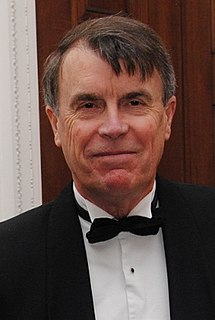 W
WIan Callum McGibbon is a New Zealand historian, specialising in military and political history of the 20th century. He has published several books on New Zealand participation in the First and Second World Wars.
 W
WRobert McNab was a New Zealand lawyer, farmer, historian, and politician of the Liberal Party. He was Minister of Justice for the 18 months before his death.
 W
WSir "Sidney" Hirini Moko Haerewa Mead is a New Zealand anthropologist, historian, artist, teacher, writer and prominent Māori leader. Initially training as a teacher and artist, Mead taught in many schools in the East Coast and Bay of Plenty regions, and later served as principal of several schools. After earning his PhD in 1968, he taught anthropology in several universities abroad. He returned to New Zealand in 1977 and established the first Māori studies department in the country. Mead later became a prominent Māori advocate and leader, acting in negotiations on behalf of several tribes and sitting on numerous advisory boards. He has also written extensively on Māori culture. He is currently the chair of the council of Te Whare Wānanga o Awanuiārangi.
 W
WPaul Moon is a New Zealand historian and a professor at the Auckland University of Technology. He is a prolific writer of New Zealand history and biography, specialising in Māori history, the Treaty of Waitangi and the early period of Crown rule.
 W
WBruce Alexander Grenfell Murray is a former Test cricketer for New Zealand who played 13 Tests as a right-handed opening batsman between 1968 and 1971. He was a school principal in the Wellington area from 1981 to 2002, and the author of several geography textbooks. Since his retirement from teaching he has been a cricket administrator in Wellington and a historian.
 W
WHoani Nahi, also spelled Hoani Nahe, was a Māori member of the House of Representatives, author and historian.
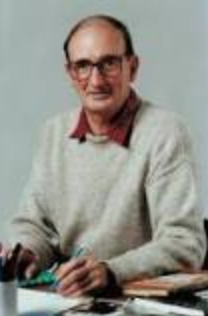 W
WGordon Bryant Ogilvie was a New Zealand historian and biographer who wrote over 20 books, mainly about the people, places and institutions of the Canterbury region. He played a considerable role in uncovering the exploits of pioneer aviator Richard Pearse and popularising these for the first time through his 1973 work The Riddle of Richard Pearse. His other major biography, Denis Glover : His Life (1999), was the first full account of this significant figure in New Zealand literature.
 W
WDame Claudia Josepha Orange is a New Zealand historian best known for her 1987 book The Treaty of Waitangi, which won 'Book of the Year' at the Goodman Fielder Wattie Book Award in 1988.
 W
WJohn Dobrée Pascoe was a New Zealand mountaineer, photographer, writer, editor, historian and archivist.
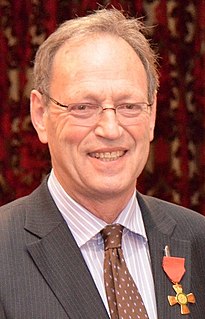 W
WJohn Oliver Crompton Phillips is a New Zealand historian, author and encyclopedist. He was the general editor of Te Ara: The Encyclopedia of New Zealand, the official encyclopedia of New Zealand.
 W
WChristopher John Pugsley is a New Zealand military historian. He is published as Chris Pugsley and Christopher Pugsley.
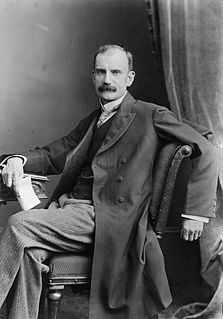 W
WWilliam Pember Reeves was a New Zealand politician, cricketer, historian and poet who promoted social reform.
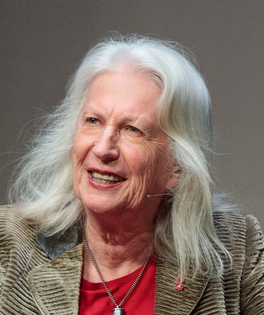 W
WDame Mary Anne Salmond is a New Zealand anthropologist, environmentalist and writer. She was New Zealander of the Year in 2013.
 W
WGuy Hardy Scholefield was a New Zealand journalist, historian, archivist, librarian and editor, known primarily as the compiler of the 1940 version of the Dictionary of New Zealand Biography. He was born in Dunedin, Otago, New Zealand on 17 June 1877, and died in Wellington on 19 July 1963.
 W
WRichard George Scott was a New Zealand historian and journalist.
 W
WMorvin Te Anatipa Simon was a New Zealand Māori composer, kapa haka leader, choirmaster and historian.
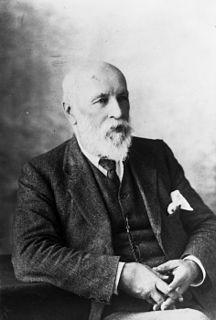 W
WStephenson Percy Smith was a New Zealand ethnologist and surveyor. He founded The Polynesian Society.
 W
WProf Duncan MacLaren Young Sommerville (1879–1934) was a Scottish mathematician and astronomer. He compiled a bibliography on non-Euclidean geometry and also wrote a leading textbook in that field. He also wrote Introduction to the Geometry of N Dimensions, advancing the study of polytopes. He was a co-founder and the first secretary of the New Zealand Astronomical Society.
 W
WHugh Stewart, was an academic, soldier and historian whose work had a major impact in both England and New Zealand.
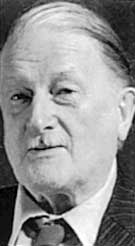 W
WSir Ronald Syme, was a New Zealand-born historian and classicist. Long associated with Oxford University, he is widely regarded as the 20th century's greatest historian of ancient Rome. His great work was The Roman Revolution (1939), a masterly and controversial analysis of Roman political life in the period following the assassination of Julius Caesar.
 W
WSir Peter Henry Buck, also known as Te Rangi Hīroa or Te Rangihīroa, was a New Zealand doctor, military leader, health administrator, politician, anthropologist and museum director. He was a prominent member of Ngāti Mutunga, his mother's Māori iwi.
 W
WJane Tolerton is a New Zealand biographer, journalist and historian.